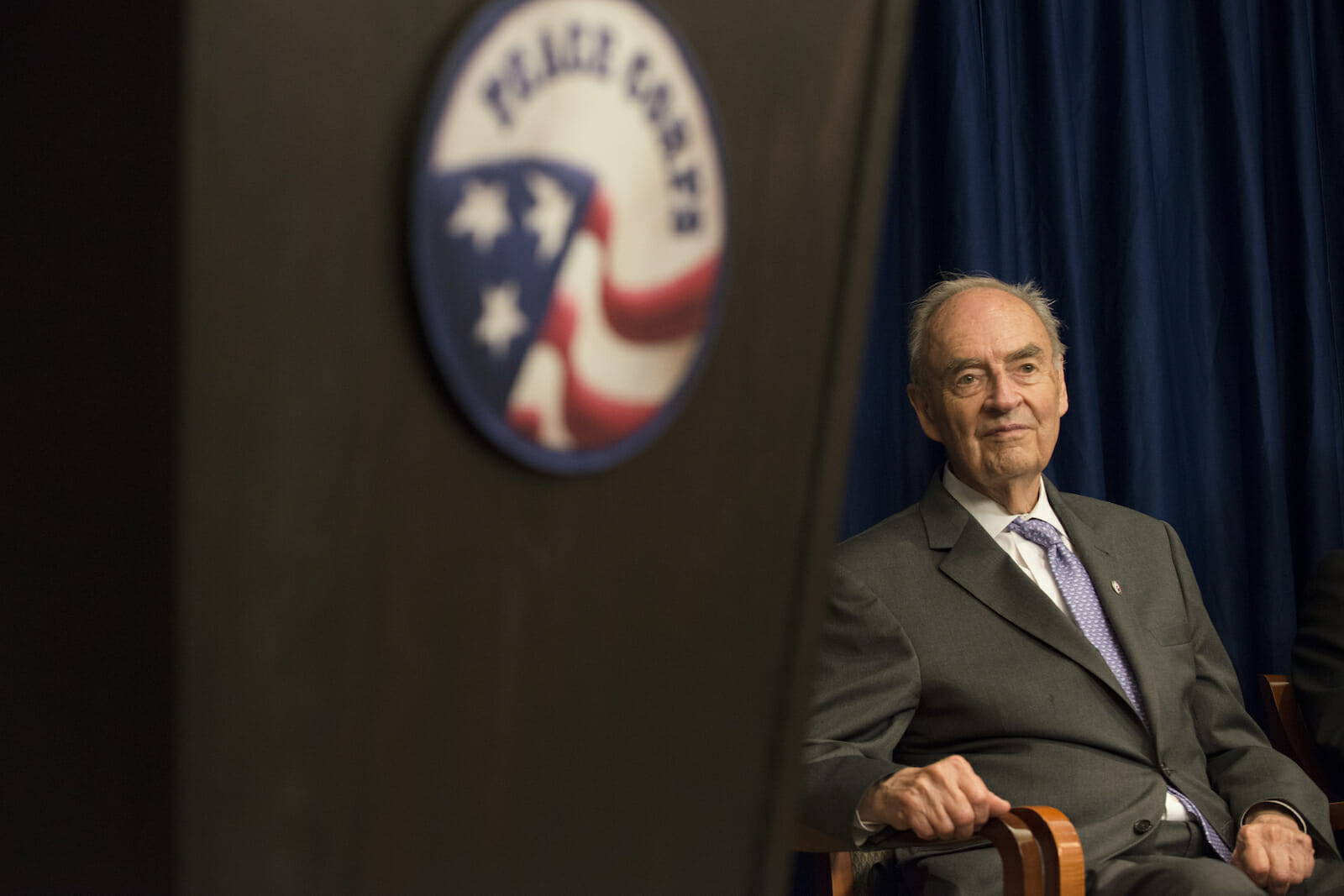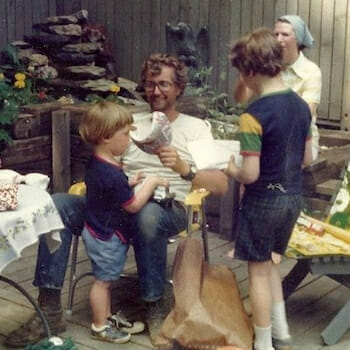
Culture
Remembering Harris Wofford
Several years ago the Ethiopian Embassy invited former Ethiopian Peace Corps volunteers to a celebration of the 50th anniversary of the Peace Corps. At that event, I was thrilled to be able to meet again Harris Wofford and to introduce two of my sons, John and Ben Lyman, to him.
While I served as a Peace Corps teacher (1962-64) in remote northwest Gondar, Ethiopia, Harris was a frequent and welcome presence in the capital, Addis. At the time I knew little about his ties to the Kennedy campaign.
I assume he was responsible for our visit to Jubilee Palace in Addis to meet Haile Selassie. It was there as I recount in my Peace Corps diary accounts published in International Policy Digest that when I stepped back from shaking Haile Selassie’s hand I stepped on his dog and was later given the opportunity to have an iconic photo taken of myself playing with his pet cheetah in the zoo behind the palace.
Harris was, I suspect, also responsible for the photo spread about African bound Peace Corps volunteers training in Washington which appeared in Ebony magazine in 1962. President Kennedy greeted us on the lawn and there, in one photo, is my face looming above the crowd.
In Ethiopia during my Peace Corps tour, rumor often served as our only source of news. One rumor which circulated about Harris was that his activities in support for civil rights had pushed Kennedy too far and, as a result, Harris was sent off to exile in Africa. At the event at the Ethiopian Embassy in celebration of the Peace Corps, I jokingly asked Harris whether there was any truth to that rumor of his African exile. He said no!
Harris and I stayed “in touch” periodically over the past 55 years.
Although I was vaguely aware that Harris was a civil rights advocate, I was not aware of the role he played or the plan he devised and convinced JFK and his brother, Robert to enact that led to Martin Luther King’s being released from jail in Georgia. He had been arrested as part of a peaceful group attempting to integrate an Atlanta department store dining room. His wife was six months pregnant at the time and reached out for help.
In Harris’ words, “Why shouldn’t Kennedy just call Mrs. King? She was very anxious. Why can’t Kennedy call and say, ‘We’re working at it; we’re going to get him out. You have my sympathy.’ A personal, direct act.”
The call was made by JFK and King was released the next day after Robert Kennedy, his brother’s campaign manager, made another call – this time to the judge. Kennedy drove home the political importance of freeing King and assured the jurist that his help would make him “a welcome visitor in a future Kennedy White House.” How ironic that Harris died on Martin Luther King’s birthday!
Harris Wofford was a hero of mine who will be remembered for his life of service.

